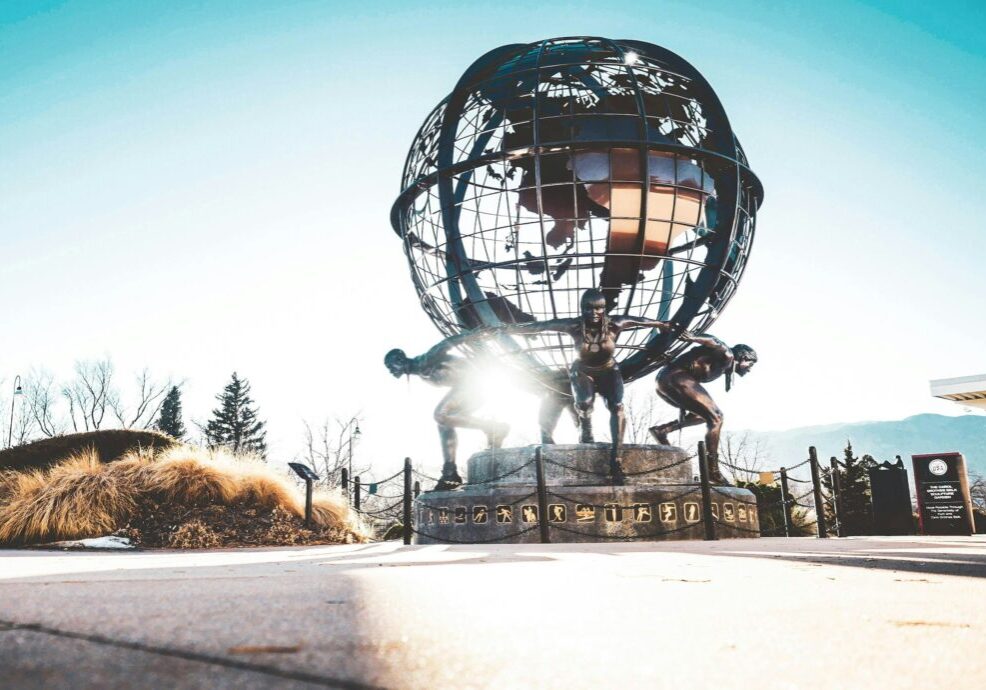Eat Like an Olympian

As eyes from around the world gather to watch the Paris Olympics 2024, we marvel at the athletes’ talents and wonder how to eat like an Olympian. Years, even a lifetime, of hard work, dedication, discipline, and support from family, friends, and coaches go into each athlete’s dream to stand on the podium.
Nutrition plays a fundamental role in the performance of athletes. Olympians train rigorously day in and day out to compete at their highest levels. They must find the right balance of macronutrients and micronutrients to support their individual body’s needs for energy, recovery, and their overall health. Body composition and metabolic rates are important factors for a sports nutritionist, such as Ashley Besecker, RDN in our region, to consider in creating a customized plan for each athlete.
A balanced nutrient-dense diet provides the energy necessary for rigorous training, enhances recovery, supports immune function, and helps in injury prevention. When an athlete is deficient in various nutrients, they can experience fatigue, decreased performance, and have a higher risk of injury.
So what does this look like for their meal planning? How many calories does an athlete need?
Macronutrients: Carbohydrates, Proteins, & Fats

Carbohydrates provide the main energy source that is necessary for endurance and high-intensity interval training. Carbs represent 55-65% of total caloric intake.
- Oatmeal: high in fiber to provide sustained energy
- Sweet Potatoes: a complex carbohydrate that is rich in Vitamins A and C
- Brown Rice and Quinoa: complex carbs that aid in glycogen replenishment
- Fruits: quick energy sources loaded with antioxidants
- Whole Grain Pasta: provides energy for long training sessions

Proteins are essential for muscle recovery and repair. They help build and maintain muscle mass. Athletes aim for 15-20% of the daily calories to come from sources of protein.
- Chicken Breast: lean protein source low in fat and high in amino acids
- Salmon: rich in Omega-3 fatty acids, eases inflammation, promotes heart health
- Greek Yogurt: high in protein and probiotics, great for post-workout recovery
- Eggs: a complete protein with essential amino acids, high in Vitamins D and B12
- Legumes: plant-based proteins loaded with fiber, iron, and essential vitamins

Healthy sources of Fats are important for hormone production, energy, and overall health. Healthy fats provide 20-30% of daily caloric intake for Olympic athletes.
- Avocados: rich in monounsaturated fats, great for heart health
- Nuts: provide protein, healthy fats, fiber, and magnesium
- Chia Seeds: packed with Omega-3s, fiber, and protein; add to smoothies
- Olive Oil: healthy fat source for cooking and dressings; high in antioxidants
Micronutrients: Vitamins and Minerals


You’ve heard the phrase “Eat the Rainbow” which refers to enjoying colorful foods. Consuming a variety of fruits and vegetables is essential for optimal performance, strength, and recovery.
- Spinach: high in iron and nitrates which enhance blood flow
- Kale: rich in vitamins A, C, and K; supports immune function
- Berries: antioxidants help minimize muscle soreness after intense workouts
Citrus: high in Vitamin C, reduces inflammation
Hydration

During training and competition, staying hydrated is crucial to maintain peak performance. Electrolytes are minerals in your body that carry an electric charge.
- Water: the primary source for hydration
- Coconut Water: a natural electrolyte source
- Sports Drinks: can replenish electrolytes
- Milk: cow’s milk provides electrolytes, carbs, and protein; ideal for post-workout
- Watermelon and Cucumber: foods high in water content
How Many Calories Does an Olympic Athlete Eat?
Daily caloric needs for Olympic athletes can range from 3,000 to 10,000 calories depending on their training demands. While endurance athletes usually require more calories to maintain energy levels, strength athletes may prioritize protein intake for muscle recovery and growth.
Athletes with higher metabolic rates need more calories to meet their body’s demand for energy. Athletes will also balance their macronutrient consumption before, during, and after training to optimize their performance and recovery.
Male athletes typically have higher caloric needs than female athletes due to a greater muscle mass and basal metabolic rate. Depending on the sport and training, their daily caloric intake can range from 4,000 to 8,000 calories.
Female athletes generally require 3,000 to 6,000 calories per day. This varies based on body size, type of training, and overall energy expenditure.
Example Daily Meal Plan for Olympic Athletes
Breakfast
Scrambled Eggs with Spinach, Whole-Grain Toast
Oatmeal with Berries
Morning Snack
Greek Yogurt with Honey and Nuts
Lunch
Grilled Chicken Salad with Mixed Greens, Avocado, Tomato, Quinoa, and Light Vinaigrette
Afternoon Snack
Apple Slices with Almond Butter
or a Protein Shake
Dinner
Baked Salmon with Steamed Broccoli and Sweet Potatoes
Evening Snack
Cottage Cheese with Pineapple
or Kale, Banana, and Protein Powder Shake
The Daily Diet of Champions

Countless hours go into each athlete’s training to optimize their performance. As they practice their sport, they fine-tune every aspect of their day to support their physical and mental through nutrition. Unless you are training for several hours a day, you don’t necessarily need to eat like an Olympian. However, you can learn from their approaches to feel and fuel your best!
Enjoy the Paris 2024 Olympics!
